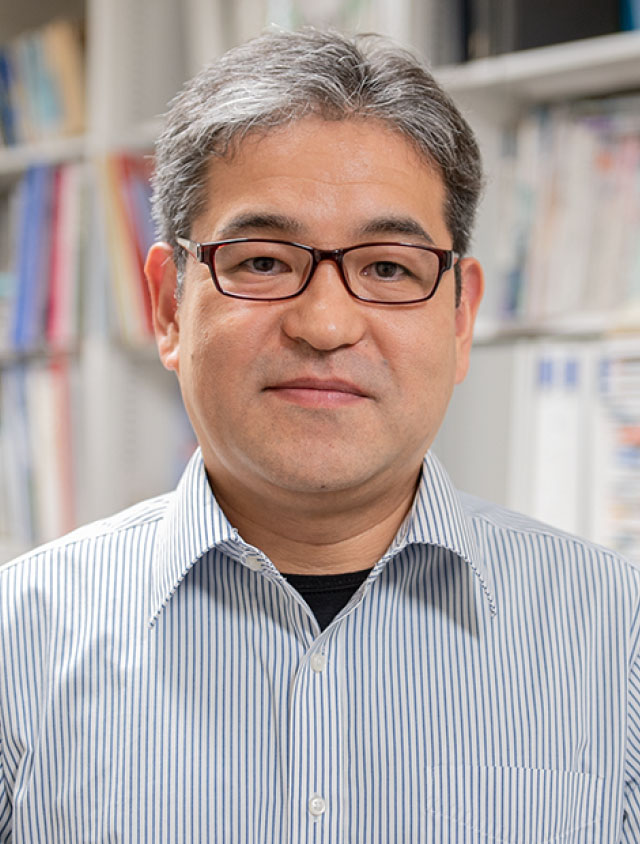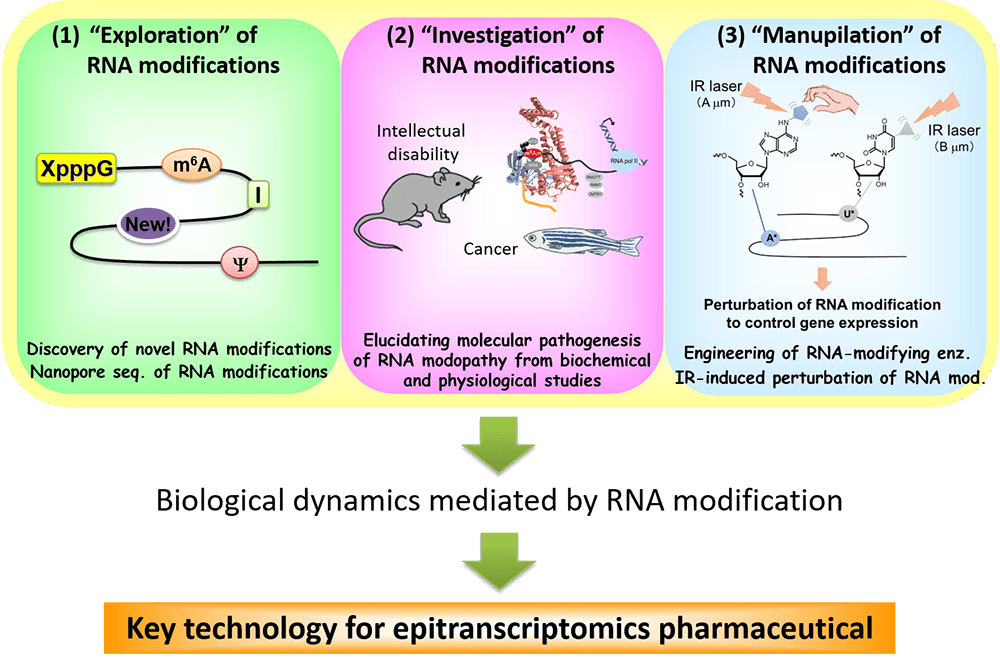Research Director
Message from Research Director
RNA contains a wide variety of chemical modifications that are enzymatically introduced after transcription. To date, about 150 types of RNA modifications have been found in various organisms. We are the first group to demonstrate that human diseases are caused by hypomodified tRNAs, demonstrating physiological importance of RNA modifications. Since then, it has been reported that a number of human diseases are associated with pathogenic mutations in genes responsible for RNA modifications. Based on these findings, we proposed the term “RNA modopathy” to refer to human disease caused by aberrant RNA modification.
Recent studies have elucidated the role of RNA modifications in regulating gene expression, a phenomenon termed “epitranscriptomics”. In this project, we aim to unveil the physiological roles of RNA modifications associated with fundamental biological processes. The project consists of three sub-projects: (1) Exploration, (2) Investigation, and (3) Manipulation of RNA modifications. By pursuing these aims, we will strive to elucidate fundamental principles of biological dynamics, while at the same time establishing platform technologies applicable to medical sciences.
In the Exploration, we search for novel RNA modifications from human cells and other organisms, and determine their chemical structures by RNA mass spectrometry. To identify and quantify RNA modifications and map them in RNA sequences at single-nucleotide resolution, we are developing a game-changing platform technology using nanopore sequencing of RNA modifications assisted by neural networks and deep learning.
In the Investigation, we identify novel RNA-modifying enzymes and their genes, and study biogenesis and physiological function of the RNA modifications. We use clinical specimens, patient cells, and knockout mice to reveal the molecular pathogenesis of RNA modopathies by physiological, biochemical, and genetic approaches.
In the Manipulation, we attempt to control cellular processes by artificially manipulating RNA modifications, thereby establishing a technological basis for future drug discovery and therapeutic measures.
This project consists of four groups with different disciplines: Biochemistry group, Physiology group, Bioinformatics group, and Single Molecule Sensing group. Although each group carries out its own project independently, we collaborate and share the results as much as possible toward our ultimate goals of this project.

Tsutomu Suzuki

Contact
Mail:info-rna<AT>chembio.t.u-tokyo.ac.jp *Change <AT> to @

